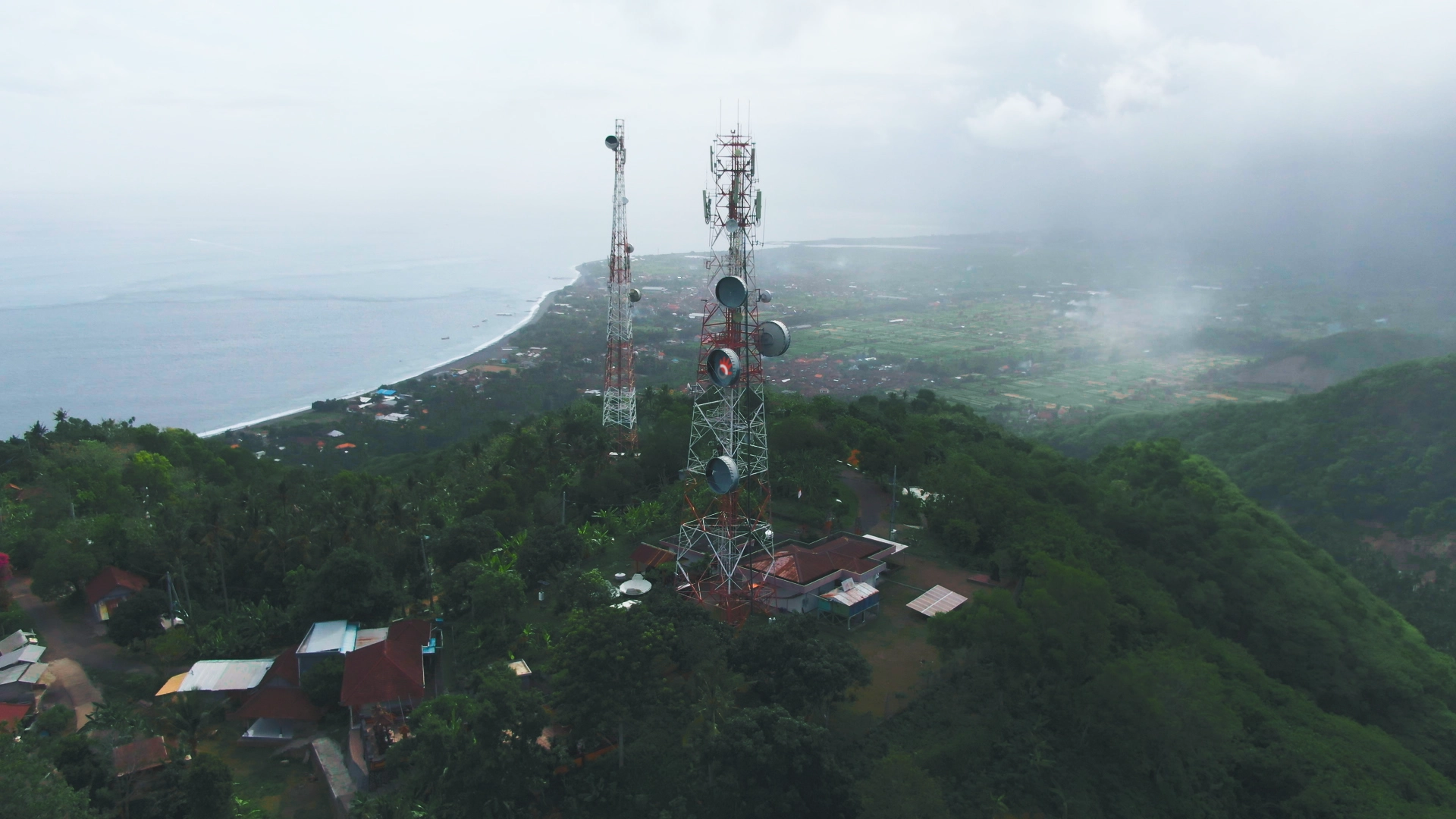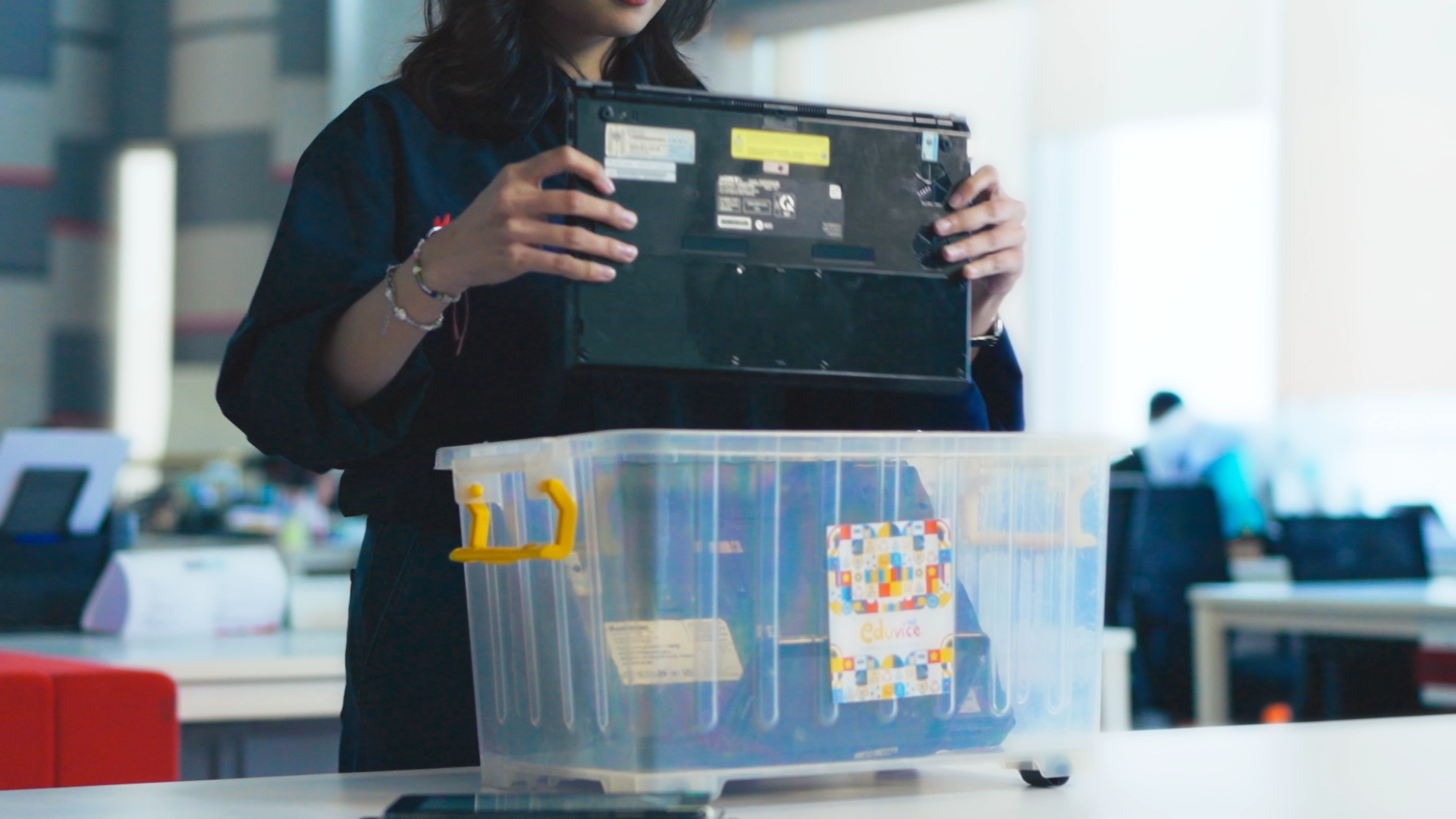Sub Menu
Our Planet





TelkomGroup is committed to continuing to transform in sustainability efforts while supporting the government's target of achieving Net Zero Emission (NZE) in 2060, by setting decarbonization baselines and targets and carrying out a series of initiatives to reduce the carbon footprint which are summarized in the Telkom ESG Pillar framework - Right Environmental Approach.
We are taking strategic steps to improve ESG risk management, especially in dealing with climate change issues which include energy reduction, energy management in data centers, waste management, resource efficiency and the use of renewable energy sources.
One of them is carrying out decarbonization through the Green Data Center Program, considering that data center management is one of the largest uses of energy in TelkomGroup's operational activities. Apart from that, we also implement the use of renewable energy, namely solar energy (solar cell) and fuel cell technology in BTS managed by our subsidiary entity or called Green BTS.
TelkomGroup is committed to supporting the government's target of achieving Net Zero Emission (NZE) by 2060. Telkom has set decarbonization baselines and targets, as well as carrying out a series of initiatives summarized in the Telkom ESG Pillar framework - Right Environmental Approach.
Telkom has implemented various steps to support sustainable energy use in 830 locations, including the use of solar cells, biodiesel and micro hydro. Apart from that, Telkom continues to optimize the use of solar cell energy and fuel cell technology at Base Transceiver Stations (BTS) and Data Centers which are significant contributors to emissions and energy consumption in telecommunications companies. Overall, in operational activities, Telkom is trying to reduce the use of electricity, paper and water so that it can reduce between 4-21% in 2023. In managing emissions, Telkom has succeeded in reducing Green House Gas emissions in 2023, with an achievement of 1,724. 335.18 tonnes CO2eq which decreased by 7% compared to the previous year.
Telkom has also carried out planting activities of 45,500 mangrove trees, revegetation of 62,150 trees in 10 locations, and rehabilitation of 3,920 coral reefs. These initiatives demonstrate Telkom's dedication to maintaining and restoring natural ecosystems and strengthening its commitment to environmental sustainability.
As climate challenges increase, Telkom is taking strategic steps in facing the issue of climate change by identifying and grouping risks and opportunities related to climate change into 2 (two) categories, namely physical and transition referring to International Financial Reporting Standards (IFRS) S2. All information related to Telkom's climate management has been included in the 2023 Telkom Climate Risk Report.
In managing waste generated from TelkomGroup's operational activities, we consistently carry out a series of programs and ongoing efforts to reduce the amount of waste, extend the service life of devices, and collaborate with various parties to ensure that waste is processed responsibly.
We sort and store devices that can still be used, repair damaged devices, and through the Eduvice program we involve employees in extending the life of their devices to be used as educational resources for the community.
We are also taking steps to reduce the potential for solid waste by reducing the size of physical cards to 3-in-1 for SIM card starter packs and physical vouchers, as well as replacing physical vouchers with electronic ones through the Go Digital Channel program. Using applications is also a way to reduce single-use material waste in operational activities.
Telkom has implemented a comprehensive information technology hardware management system, covering outdated computers, servers, routers and customer premise equipment (CPE). These devices are professionally sorted and conditioned so they can be reused or stored as temporary replacements and backups for emergencies.
Another step in efforts to reduce waste, Telkom took the initiative to reduce the size of physical cards to 3-in-1 for starter packs of new SIM cards and physical vouchers. Through the Go Digital Channel program, Telkom is also replacing physical vouchers with electronic vouchers, which not only reduces waste but also saves printing, logistics and distribution costs.
Telkom has also launched the Eduvice program which encourages employees to place their personal electronic waste in special boxes placed in several office locations. This electronic waste is then processed into value-added goods by waste management partners. Apart from that, Telkom facilitates vocational school students to learn to repair electronic devices, thereby helping to form an ecosystem with minimal waste.

